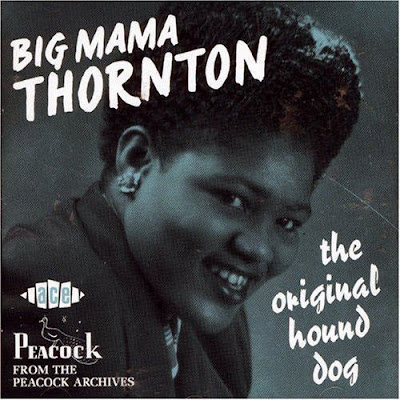These two musical giants from Alabama are linked by the 1958 film St. Louis Blues. Cole played Handy in the film named after one of his best known songs and loosely based on his life. Actress Ruby Dee and several other jazz greats such as Pearl Bailey, Cab Calloway and Ella Fitzgerald also appear. Gospel singer Mahalia Jackson is in the movie, which features more than ten of Handy's songs. Cole released an album of Handy compositions to accompany the film.
William Christopher Handy was born in Florence on November 16, 1873. He was the son and grandson of ministers, and the family saw that he received a good education. His father Charles discouraged an interest in secular music, but Handy was able to gain local exposure to it anyway in the form of folk and popular music from a fiddler, "Uncle Whit" Walker and the marches and cakewalks of minstrel shows passing through his home town.
Handy earned a teaching certificate, but soon was making more money at the Bessemer Iron Works near Birmingham. He joined a vocal quartet that toured as far as St. Louis, where they were stranded, and he heard some of the folk materials that would become his most famous composition. He then joined a minstrel show as the cornet player in their marching band and toured to Canada, Cuba, and many others places. After a time back in Alabama and in Mississippi, he settled in Memphis where his blues song writing and publishing flourished. By the time of his death on March 28, 1958, Handy was known around the world for his musical contributions. A U.S. postage stamp was issued in his honor in 1969.
Handy felt the film would be "the crowning glory" of his career, as noted by David Robertson in his 2009 biography, W.C. Handy: The Life and Times of the Man Who Made the Blues [p.228]. The "biopic" was hardly accurate, but as Robertson observes, Cole looked good in the role of Handy.
Nathaniel Adams Coles was born in Montgomery on March 17, 1919. In 1923 Coles' Baptist minister father moved the family to Chicago along with so many other blacks moving north in the Great Migration. As he grew older the young Nat heard jazz legends such as pianists Earl Hinds, Art Tatum and Teddy Wilson in nearby clubs. His mother taught him piano, and he dropped out of high school at 17 and joined his older brother Eddie's jazz groups, Within a few years he had married, moved to Los Angeles, dropped the "s" from his last name and formed the Nat King Cole Trio with a guitarist and bass player. The group's lack of a drummer was unusual at the time.
By the age of 25 Cole picked up the nickname "King" & the King Cole Trio had increasing popularity in both west and east coast venues. Their 1943 recording "Straighten Up and Fly Right" had such success the group crossed over to the pop charts. Capitol Records began marketing Cole's velvet voice with love ballads, and in 1955 the Trio disbanded. Cole's popularity continued until his death on February 15, 1965, and his recordings of "Unforgettable", "Ramblin' Rose" and others have remained popular. His 1960 release The Magic of Christmas was the biggest selling such holiday album of the 1960's.
Cole's achievements include a short-lived variety program on the NBC television network. Due to a lack of sponsorship the show only ran for 30 episodes in 1956 and 1957. Yet the program broke new ground; never before had a black had such a prominent role on American television.
St. Louis Blues was not Cole's only film appearance. He is the uncredited piano player in the El Rancho nightclub sequence of the 1941 Orson Welles classic Citizen Kane and played the Sunrise Kid in Cat Ballou, released the year he died. In between he appeared as himself, as a singer or piano player in a variety of movies and television episodes. He had a major dramatic role alongside Gene Berry and Angie Dickinson in Samuel Fuller's 1957 war movie, China Gate. Other such roles includes Night of the Quarter Moon [1959] and Istanbul [1957].
If Cole had not died so young, perhaps he would have expanded his work in films and television.



















































